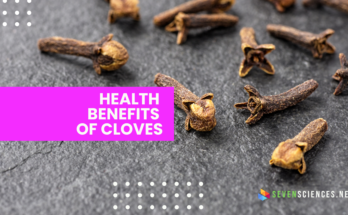In this article, we shall learn about top 5 vitamins to stop acid reflux in a natural way. But what is Acid Reflux? Acid reflux is commonly known as heartburn or the chronic form is called gastroesophageal reflux disease (GERD) . It occurs when stomach acids flow back into the esophagus, leading to discomfort and a sour taste. Try to add natural foods, minerals and vitamins to stop acid reflux.

Table of Contents
What is Acid Reflux?
Acid reflux, also known as gastroesophageal reflux disease (GERD), is a common digestive disorder that occurs when stomach acid flows back into the esophagus. The esophagus is the tube that connects the mouth to the stomach. Normally, a ring of muscle called the lower esophageal sphincter (LES) prevents stomach acid from flowing upward. However, when the LES weakens or relaxes abnormally, acid can escape from the stomach, causing a range of uncomfortable symptoms.
Symptoms of Acid Reflux
Acid reflux can cause a variety of symptoms, including:
- Heartburn: a burning sensation in the chest or throat
- Regurgitation: the sensation of acid or food coming back up into the mouth
- Difficulty swallowing
- Chronic cough or sore throat
- Hoarseness or voice changes
Causes of Acid Reflux
Several factors contribute to acid reflux including;
- Lifestyle
- stress,
- poor eating habits
- specific medications can weaken the LES.
- Excessive consumption of acidic, fatty foods can also trigger acid reflux.
- Excessive stomach acid
- A malfunctioning LES.
- Foods rich in spices, unhealthy fats, caffeine, and carbonated beverages can exacerbate acid reflux by boosting stomach acid production.
It’s a delicate balance that can tip. Therefore, adding natural foods, minerals and vitamins to stop acid reflux is the only suitable option.
Health Implications of Acid Reflux
Acid reflux can lead to significant health issues, including:
- Esophagitis: Irritation & inflammation of the esophagus lining due to stomach acid, causing pain.
- Ulcers: Acid contributes to stomach and duodenal ulcers.
- Barrett’s Esophagus: Changes in the esophagus lining increase the risk of esophageal cancer.
- Heartburn: Frequent Heartburn disrupts daily life and sleep.
- GERD: Chronic acid reflux leads to Gastroesophageal Reflux Disease.
- Respiratory Issues: Aspiration of acid can cause coughing and asthma-like symptoms.
Treatment and Prevention
While occasional acid reflux is common and usually not a cause for concern, frequent or severe symptoms may require medical intervention. Treatment options for acid reflux include lifestyle changes, such as avoiding trigger foods and maintaining a healthy weight, as well as over-the-counter or prescription medications to reduce stomach acid production. In some cases, surgical procedures may be recommended to strengthen the LES or repair any damage to the esophagus. Natural food have vitamins to stop acid reflux.
To prevent acid reflux, it is advisable to eat smaller, more frequent meals, avoid lying down immediately after eating, and elevate the head of the bed while sleeping. Additionally, reducing stress levels and quitting smoking can help alleviate symptoms.
It is important to consult with a healthcare professional for an accurate diagnosis and appropriate treatment plan for acid reflux.
The lower esophageal sphincter (LES) as a gatekeeper and it is supposed to seal off the stomach. However, when it weakens, acid can escape, causing irritation and symptoms. So, lets find out about foods and vitamins to stop acid reflux naturally.
Vitamins to Stop Acid Reflux
Lets discuss about foods and common vitamins to stop acid reflux naturally.
1. Ginger
Ginger, revered for its potent anti-inflammatory and digestive benefits, can bring tremendous relief. Its phenolic compounds calm the LES, mitigating irritation and acid reflux symptoms.
Sources and Daily Dosage
Incorporate fresh ginger into your diet – chew on a slice or steep it in tea. Aim for 1 to 2 grams of ginger daily for optimal relief.
Usage Tips
- Ginger Tea Elixir: Steep fresh ginger slices in hot water for a comforting tea. Add a touch of honey for extra flavor.
- Ginger-Infused Meals: Grate ginger into stir-fries, soups, and curries to infuse dishes with its anti-inflammatory properties.
- Ginger Wellness Shot: Blend ginger, lemon, and a dash of cayenne pepper for a zesty shot that jumpstarts your day.
Health Benefits
- Gentle Digestive Aid: Ginger’s compounds ease stomach discomfort and support smooth digestion.
- Anti-Inflammatory Boost: Ginger’s anti-inflammatory effects benefit overall health, reducing inflammation in the gut.
- Natural Immune Support: Ginger’s immune-boosting properties strengthen your body’s defense mechanisms.
- Ginger offers anti-nausea properties and aids digestion.
These benefits make ginger a versatile addition to your wellness routine.
2. Zinc L-Carnosine
Zinc L-carnosine combines zinc’s tissue-repair properties with carnosine’s anti-inflammatory effects, making it a dynamic remedy for acid reflux.
Sources and Daily Dosage
Supplement with around 75 milligrams of zinc L-carnosine daily under professional guidance.
Usage Advice
- Natural Zinc Sources: To incorporate more zinc into your diet, enjoy shellfish, grass-fed red meat, and pumpkin seeds.
- Supplement Synergy: Take zinc L-carnosine alongside a balanced diet to enhance its healing potential.
- Wholesome Food Pairing: Combine zinc-rich foods like pumpkin seeds with whole grains for a gut-nourishing snack.
- Homemade Zinc L-Carnosine Elixir: Blend zinc-rich foods (like lean meats and seeds) into a smoothie for a nutrient-packed treat.
Health Benefits
- Gut Lining Reinforcement: Zinc L-carnosine aids in strengthening the mucous lining of the stomach, guarding against acid damage.
- Inflammation Moderation: Zinc’s anti-inflammatory properties contribute to a calmer gut environment.
- Gut-Immunity Connection: Zinc supports gut health, promoting a robust immune system response.
Zinc L-carnosine not only helps manage acid reflux but also supports gut health and promotes a strong immune system. It’s an investment in your overall well-being.
There are powerful vitamins that can control anxiety. Anxiety is a common mental health condition that affects millions of people worldwide…
3. Betaine HCL
Betaine anhydrous is a chemical that occurs naturally in the body. It can also be found in foods such as beets, spinach, cereals, seafood, and wine.
Betaine hydrochloride is an artificial form of betaine used as a source of hydrochloric acid.
Betaine HCL with pepsin is a digestion-boosting champion. By enhancing stomach acid levels, it facilitates efficient protein breakdown and minimizes reflux risk.
Sources and Daily Dosage
Take about 1,300 milligrams of betaine HCL before meals, adjusting as necessary under expert advice.
Usage Advice
- Pre-Meal Support: Take betaine HCL with protein-rich meals to optimize digestion.
- Hydration Synergy: Sip water with lemon before meals to encourage stomach acid production.
- Mindful Eating: Chew thoroughly and savor meals to stimulate natural stomach acid secretion.
Health Impact
- Enhanced Digestion: Betaine HCL fosters efficient protein breakdown and nutrient absorption.
- Reduced Reflux Risk: Proper stomach acid levels prevent undigested food from causing reflux symptoms.
- Optimized Nutrient Utilization: Adequate stomach acid aids in extracting essential nutrients from your meals.
4. Probiotics
Probiotics, the beneficial bacteria, are essential for gut health and digestion. They maintain a balanced environment that reduces acid reflux risk.
Natural Sources and Daily Dosage
Incorporate probiotic-rich foods like yogurt, kefir, and sauerkraut into your daily routine. Aim for 1 to 10 billion CFUs daily for optimal gut balance.
Usage Advice
- Daily Probiotic Delight: Incorporate yogurt, kefir, or sauerkraut into breakfast or snacks.
- Diverse Diet: Consume a variety of fiber-rich foods to nourish probiotics and encourage gut balance.
- Probiotic Power Smoothie: Blend probiotic-rich yogurt with berries and a sprinkle of chia seeds for a gut-friendly treat.
Health Benefits
- Gut Microbiome Balancing: Probiotics foster a diverse gut flora, supporting overall digestive wellness.
- Immune System Reinforcement: A balanced gut microbiome enhances immune function and disease resistance.
- Reduced Inflammation: Probiotics contribute to a less inflammatory gut environment, easing acid reflux symptoms.
- Probiotics also contribute to improve mood & enhance nutrient absorption. They’re your partners in holistic health.
5. Apple Cider Vinegar
Apple cider vinegar is more than a kitchen staple – it’s a natural pH balancer. Its acetic acid can help regulate stomach acidity for smoother digestion.
Sources and Daily Dosage
Consume a tablespoon of organic, raw, unfiltered apple cider vinegar diluted in water before meals for optimal benefits.
Usage Advice
- Morning Ritual: Start your day with a tablespoon of apple cider vinegar in warm water to kickstart digestion.
- Zesty Salad Dressing: Create a tangy dressing by combining apple cider vinegar with olive oil, herbs, and a touch of honey.
- Refreshing ACV Tonic: Mix apple cider vinegar with sparkling water, lemon, and a mint sprig for a revitalizing beverage.
Health Benefits
- Acid Balance: Apple cider vinegar’s acetic acid aids in maintaining optimal stomach pH levels.
- Blood Sugar Regulation: ACV supports stable blood sugar levels, reducing potential acid reflux triggers.
- Digestive Efficiency: Improved stomach acidity promotes thorough digestion and nutrient absorption.
- Apple cider vinegar aids weight management and offers antimicrobial properties. It’s a simple addition with impactful benefits.
Practical Lifestyle Tips
- Combine natural remedies with a balanced diet rich in whole foods.
- Stay hydrated throughout the day to support digestion.
- Manage stress through mindfulness and relaxation techniques.
- Prioritize sleep for optimal overall health.
- Maintain a healthy body weight to alleviate pressure on the LES.
Watch the Video on Seven-Health YT Channel
Conclusion
These remedies aren’t just about managing symptoms – they’re about fostering overall wellness. Trying adding these foods and vitamins to stop acid reflux in your daily diet. As you embrace these strategies, here’s to a life free from acid reflux, enriched by vibrant health.



